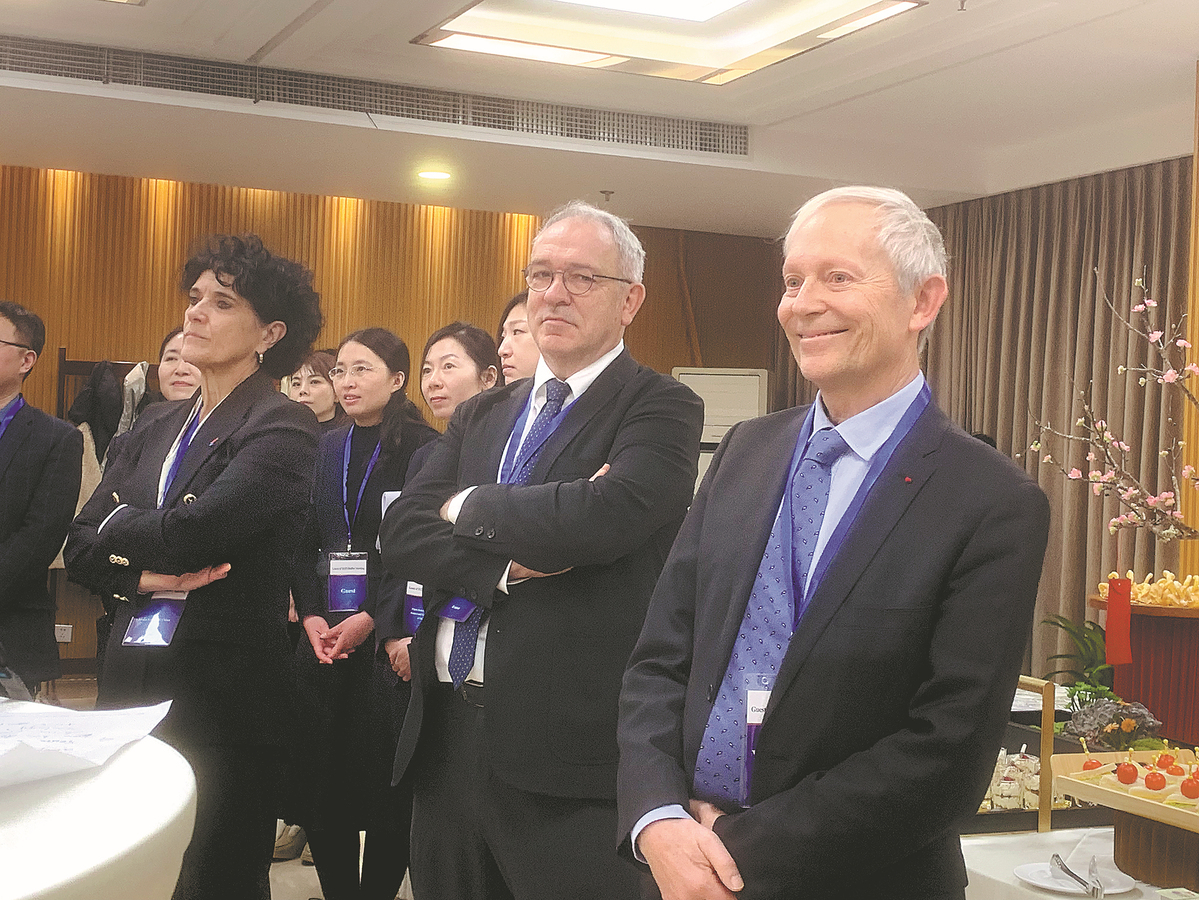French scientist receives friendship award
Known for biodiversity work, biologist lauds China's collaboration efforts
By LI MENGHAN | China Daily | Updated: 2024-02-21 09:07

Known for biodiversity work, biologist lauds China's collaboration effortszYvon le Maho, a French biologist and zoologist who was recently honored with the 2023 Chinese Government Friendship Award, has praised China for its achievements in ecological conservation, scientific research and international cooperation.
"I think China is making a huge effort to boost international collaboration, and considering the increase in the production of scientific papers by Chinese scientists, China has made a big success," he said. "The country's ecological and environmental conservation has developed nicely, which Chinese scientists should be very proud of."
The remarks were made following a ceremony hosted by the International Society of Zoological Sciences on Feb 5 to celebrate his receipt of the prestigious award.
The Chinese Government Friendship Award is the highest honor bestowed upon foreigners for their exceptional contributions to reform and development in China. The 2023 award was presented to 50 experts from 26 countries on Feb 4.
Le Maho, 77, said that he felt surprised and happy upon receiving the award, emphasizing that his area of expertise, the preservation of biodiversity, stands as a major international concern and is of global significance.
"Ever since I worked with China 15 years ago, China has had a good scientific level," he said.
He added that the international community has acknowledged China's endeavors in biodiversity conservation. He noted progress made with the Hainan gibbon, a species under first-level State protection in China and the world's rarest primate, whose population has grown from around 13 to 37 over the past two decades, and the crested ibis, whose national population has climbed from just seven in the 1980s to more than 9,000 last year, making up 90 percent of the global total.
Last year, le Maho attended an international conference on China's wandering elephants in Tengchong, Yunnan.
He said that China has established a commendable model for preserving biodiversity without disrupting the daily movements of animals. The elephants are not confined to cages, but rather interact with villagers in an organized manner within a well-protected area.
Zhang Zhibin, the executive director of ISZS who has worked with le Maho for many years, said that the Frenchman has greatly contributed to promoting scientific communication and friendship between the two countries.
Zhang said that as honorary president of the France-China association for high-level talent exchange, le Maho makes multiple visits to China every year, delivering speeches to college students and technical workers, attending biological and zoological conferences and encouraging French experts and scholars to come to China.
Reflecting on his numerous visits to Chinese universities, le Maho said that he was impressed by the students' enthusiasm to exchange ideas with foreign scientists, which evoked memories of his own experiences when he was young.
Since China and France issued the Beijing Call for Biodiversity Conservation and Climate Change in 2019, le Maho and Zhang have worked to set up a biodiversity research center that will be jointly run by the Chinese Academy of Sciences and the French National Center for Scientific Research.
Set to launch in Beijing in June, the center aims to bring together more than 20 scientists from China and 20 from France to collaborate on scientific research and conduct training sessions for students in the fields of biodiversity, ecological health and ecosystem functions.
"The center will provide a stable platform, allowing for more in-depth studies and closer cross-border collaboration," Zhang said.
As an academician of both the Academy of Europe (Academia Europaea) and the French Academy of Sciences, le Maho is a world-class scientist who specializes in zoological ecology and is known for his groundbreaking work with penguins, according to Zhang.
Le Maho found ways to study the Antarctic birds while minimizing human interference. He pioneered the use of radio-frequency identification tags to keep track of them, and he also invented a robot disguised as a baby penguin that was used as an antenna to read the tags and collect data.
The French scientist also discovered an antimicrobial molecule in penguins that helps them preserve food stored in their stomachs. This molecule was subsequently used in the development of an antibiotic drug.
Le Maho said that he has met many Chinese scientists who told him that the robotic penguin model he created has greatly inspired them.
He said that cooperation between scientists from China and France is important because they can enhance their expertise through idea exchanges and collaborative brainstorming.
"I'm sure that there will be further development on biodiversity and China-France friendship, and we are doing all we can for that," he added.
Yan Zhongqian contributed to this story.
























